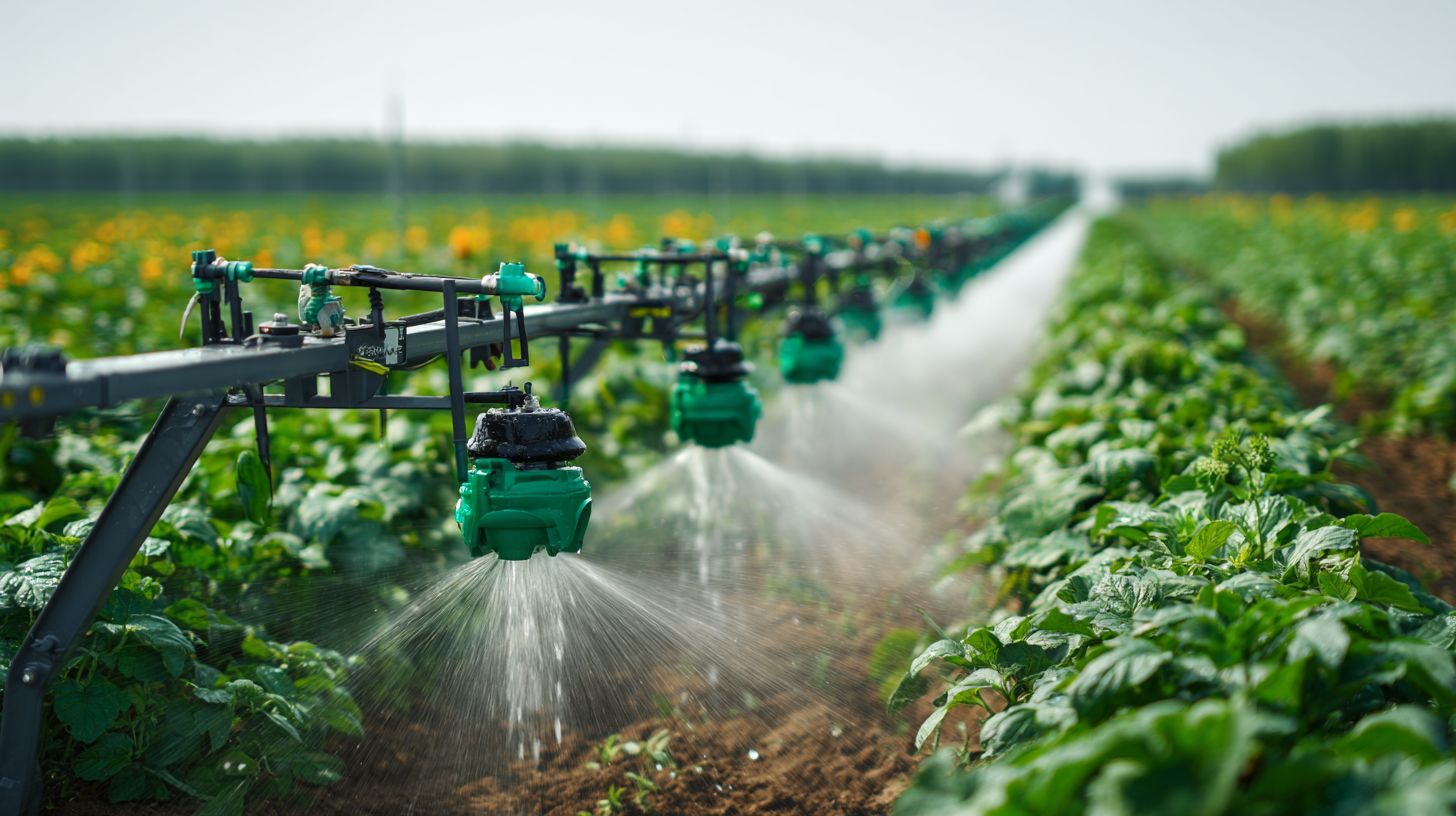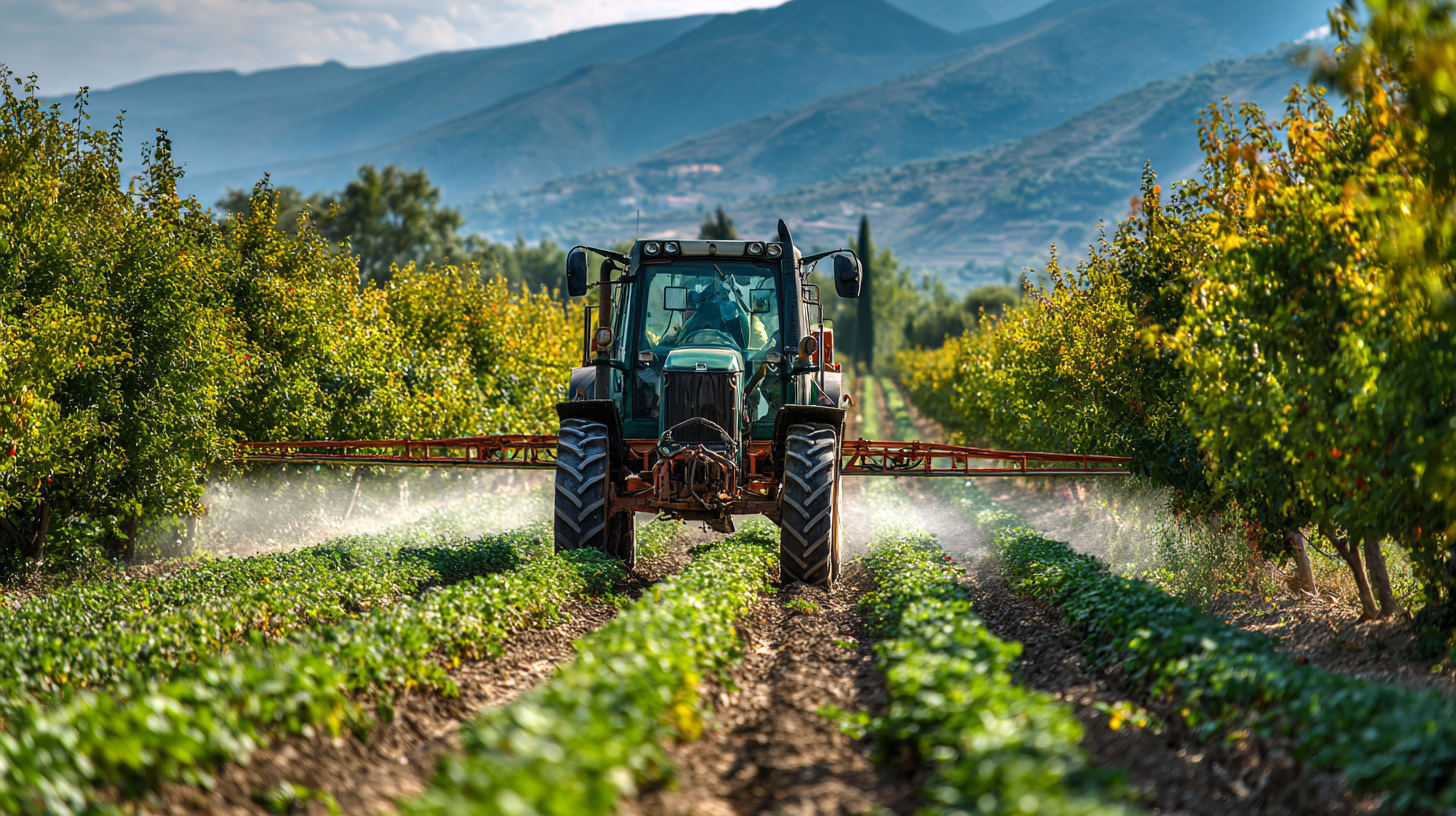In the ever-evolving landscape of agricultural procurement, understanding global trade certifications is crucial for the effective sourcing of Agricultural Water Spray Guns. According to a recent report from the Food and Agriculture Organization (FAO), the global agricultural machinery market is projected to grow at a compound annual growth rate (CAGR) of 6.2% from 2021 to 2026, highlighting the increasing demand for efficient irrigation tools. As exporters navigate the complexities of international regulations, ensuring compliance with certifications like ISO and CE can significantly impact supply chain efficiency and product acceptance in diverse markets. This blog aims to guide stakeholders through the nuances of these certifications, equipping them with essential tips and insights to optimize their procurement strategies for Agricultural Water Spray Guns in a competitive global market.

When procuring agricultural water spray guns, understanding the various standards and certifications that govern their use is crucial. These products must meet specific safety and performance benchmarks to ensure they are effective and environmentally compliant. Different regions may have distinct requirements, such as the American Society for Testing and Materials (ASTM) standards in the United States or the International Organization for Standardization (ISO) directives globally. Familiarizing oneself with these regulations enables purchasers to make informed decisions while optimizing performance and sustainability.
Moreover, the importance of certifications cannot be overstated. They often act as a quality assurance indicator that a product has been tested and verified by an authoritative body. Certifications like the CE marking in Europe or the EPA approval in the U.S. signify that the spray guns have passed rigorous testing for safety, efficacy, and environmental impact. Therefore, when navigating the procurement process, buyers should actively seek out these certifications to guarantee compliance and functionality, ensuring that their investments contribute positively to agricultural efficiency.
In the dynamic landscape of global trade, compliance in agricultural equipment procurement is crucial, especially in light of recent disruptions affecting supply chains worldwide. A study examining the impact of global supply chain interruptions, notably driven by the COVID-19 pandemic and evolving geopolitical tensions, reveals significant risks for businesses that fail to adapt. As of March 4, 2025, all imports from key trading partners such as Mexico and Canada are now subject to 25% tariffs, dramatically reshaping procurement strategies. These tariffs have not only inflated costs but also encouraged companies to reassess their global sourcing practices to ensure compliance and mitigate risks.
The growing complexity of international regulations necessitates a focus on responsible procurement practices. According to a recent industry report, nearly 60% of businesses are now prioritizing compliance and sustainability in their supply chains, with suppliers having to align with these emerging standards. As tariffs modify the competitive landscape, agricultural equipment procurement must navigate these challenges by ensuring certifications and compliance with trade regulations. This vigilance not only supports business resilience but also fosters ethical sourcing, addressing issues like modern slavery embedded in global supply chains. In this era of uncertainty, adherence to global trade compliance is more than just a regulatory requirement; it is integral to operational success and social responsibility.
This chart illustrates the importance of various global trade certifications in the procurement of agricultural water spray guns. The data reflects the percentage of procurement decisions influenced by specific certifications.
China plays a pivotal role in the global agricultural spray gun market, driven by its vast agricultural landscape and advancing manufacturing capabilities. As one of the largest producers of agricultural equipment, China's supply of water spray guns has become essential for farmers worldwide. These sprayers are crucial for enhancing crop yield and ensuring efficient irrigation practices, addressing the increasing demand for sustainable agricultural solutions.
The competitive edge of Chinese manufacturers lies not only in their cost-effectiveness but also in their ability to innovate. Many companies are investing in research and development, leading to the introduction of advanced spray technologies that improve precision and reduce water wastage. As global standards for agricultural equipment continue to evolve, China is adapting its certifications and quality controls to align with international expectations, making its products more appealing to foreign buyers. This evolution not only strengthens China's position in the market but also allows it to contribute significantly to the global push for more efficient and environmentally friendly agricultural practices.

When selecting a supplier for agricultural water spray guns, there are several key factors to consider that can significantly influence the procurement process. First and foremost, understanding the supplier's compliance with global trade certifications is crucial. These certifications not only demonstrate the quality and safety standards of the spray guns but also ensure that the products meet the necessary regulatory requirements for various markets. It’s essential to inquire about the supplier’s certifications to verify their legitimacy and reliability in the industry.
Another important aspect to consider is the supplier’s track record and experience in the agricultural sector. A supplier with extensive experience is likely to have a better understanding of the unique needs and challenges faced by farmers and agricultural businesses. This experience often translates into better customer support and product innovation. Additionally, examining customer reviews and case studies can provide insights into the supplier's reputation, product performance, and after-sales service, all of which are vital for making an informed decision.
 When importing agricultural water spray guns, ensuring quality and compliance can be a daunting task, especially given the varying global standards and certifications. One effective strategy is to conduct thorough research on the regulatory requirements of both the exporting and importing countries. Understanding certifications such as ISO, CE, or specific agricultural equipment standards can significantly aid procurement professionals in selecting reliable suppliers. This knowledge not only helps in mitigating risks associated with non-compliance but also fosters better relationships with vendors who adhere to these standards.
When importing agricultural water spray guns, ensuring quality and compliance can be a daunting task, especially given the varying global standards and certifications. One effective strategy is to conduct thorough research on the regulatory requirements of both the exporting and importing countries. Understanding certifications such as ISO, CE, or specific agricultural equipment standards can significantly aid procurement professionals in selecting reliable suppliers. This knowledge not only helps in mitigating risks associated with non-compliance but also fosters better relationships with vendors who adhere to these standards.
Another crucial step is to implement a robust quality control process during the procurement phase. Engaging third-party inspection services can be beneficial in assessing the equipment before shipment. This ensures that the agricultural spray guns meet the necessary quality standards and specifications. Additionally, establishing clear communication channels with suppliers regarding compliance expectations helps preempt potential issues. Incorporating these strategies can lead to smoother transactions and ultimately result in better operational efficiencies in agricultural practices.
